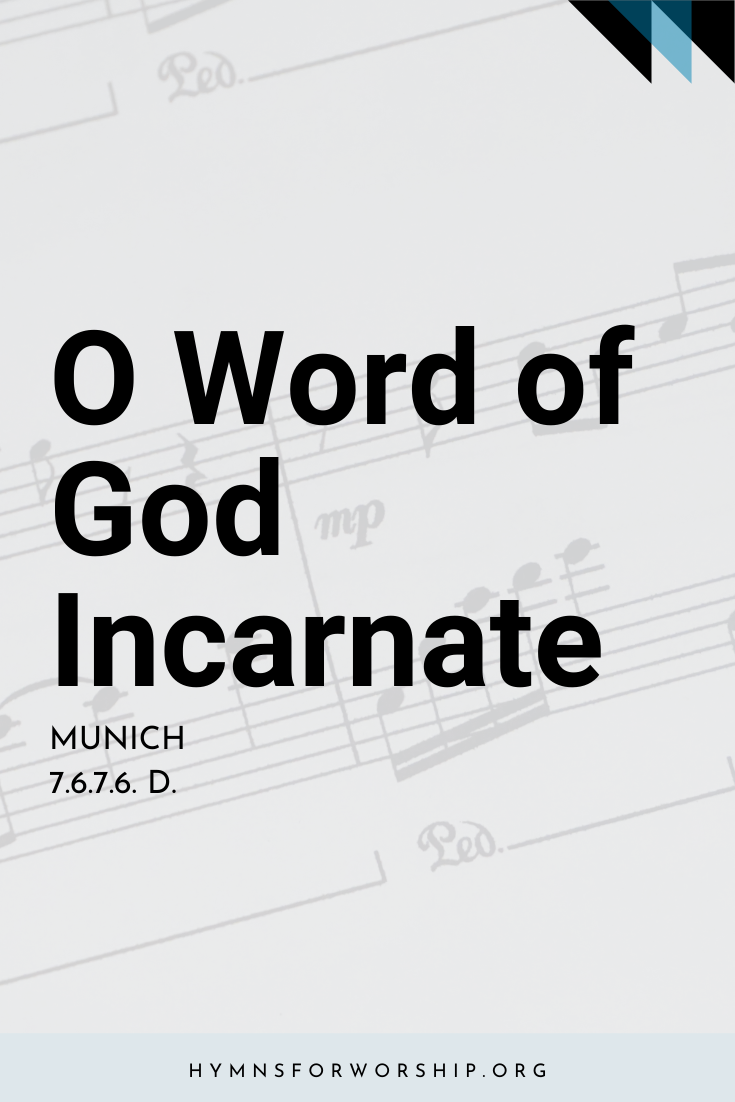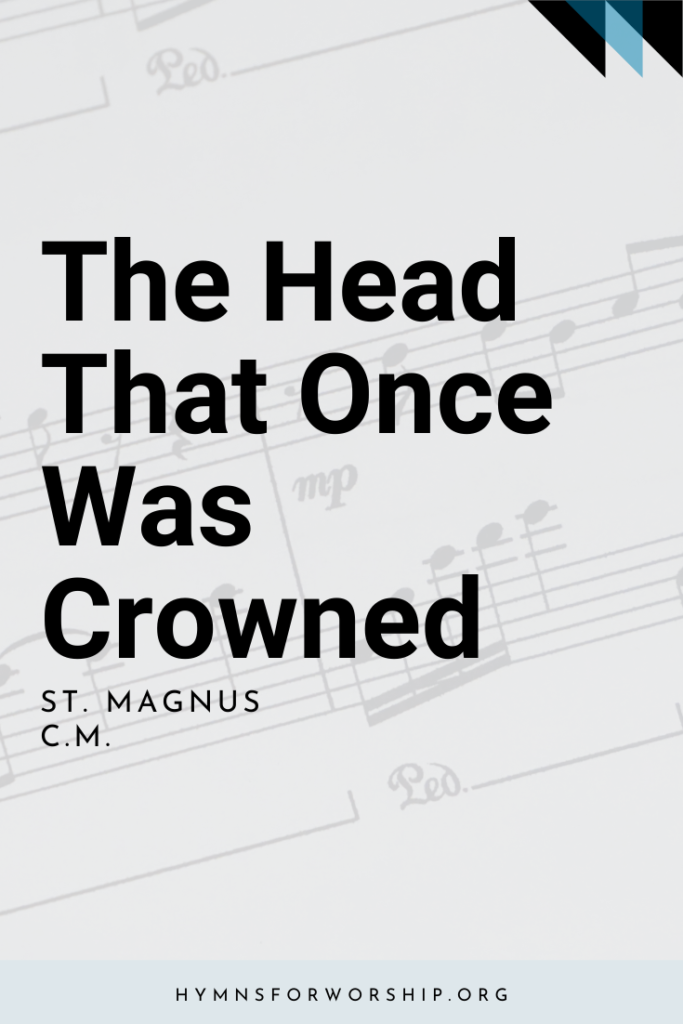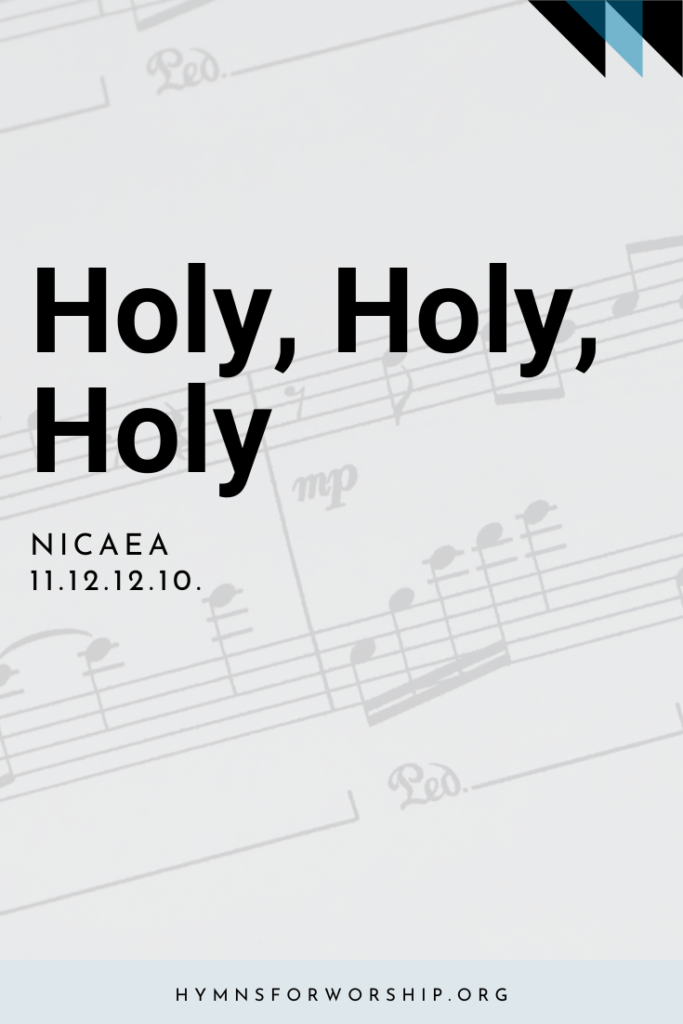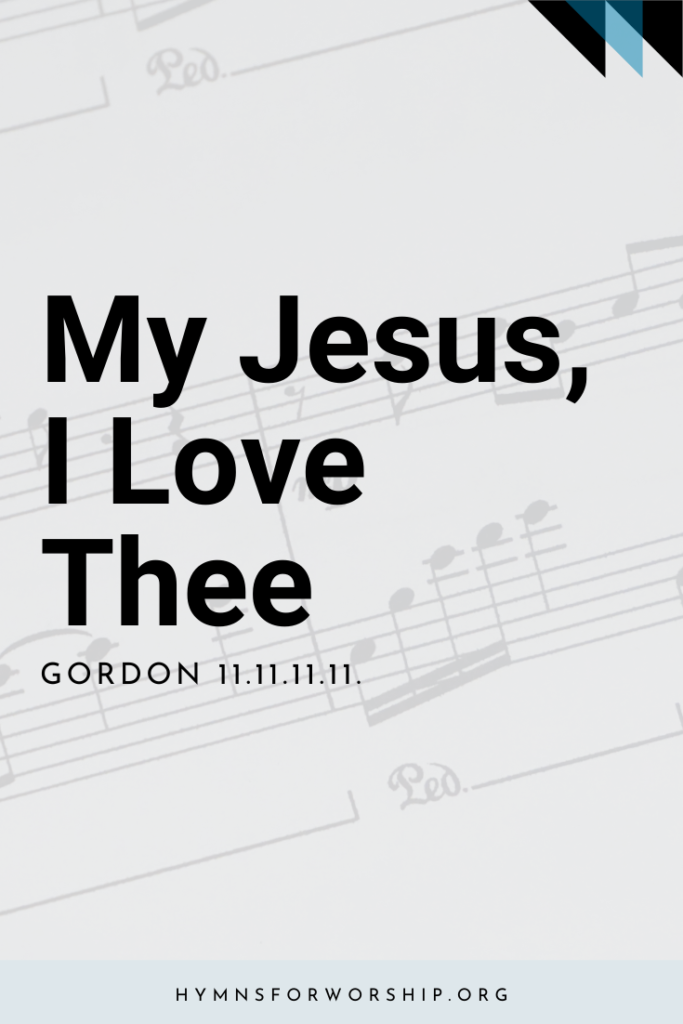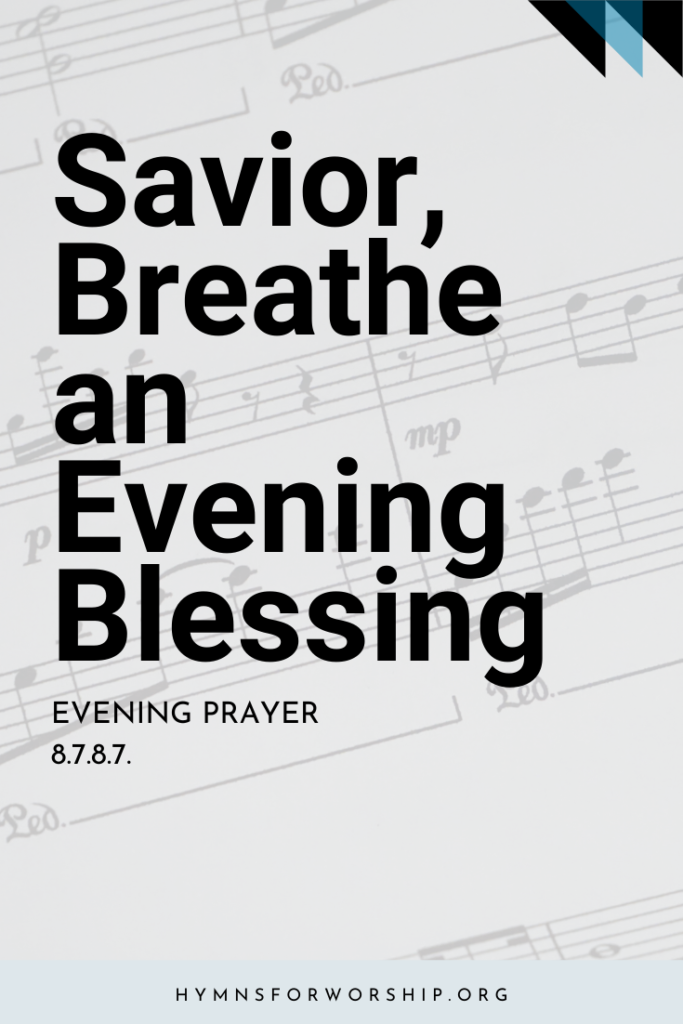HOLY SCRIPTURES
SDAH 274
O Word of God incarnate,
O Wisdom from on high,
O Truth unchanged, unchanging,
O Light of our dark sky:
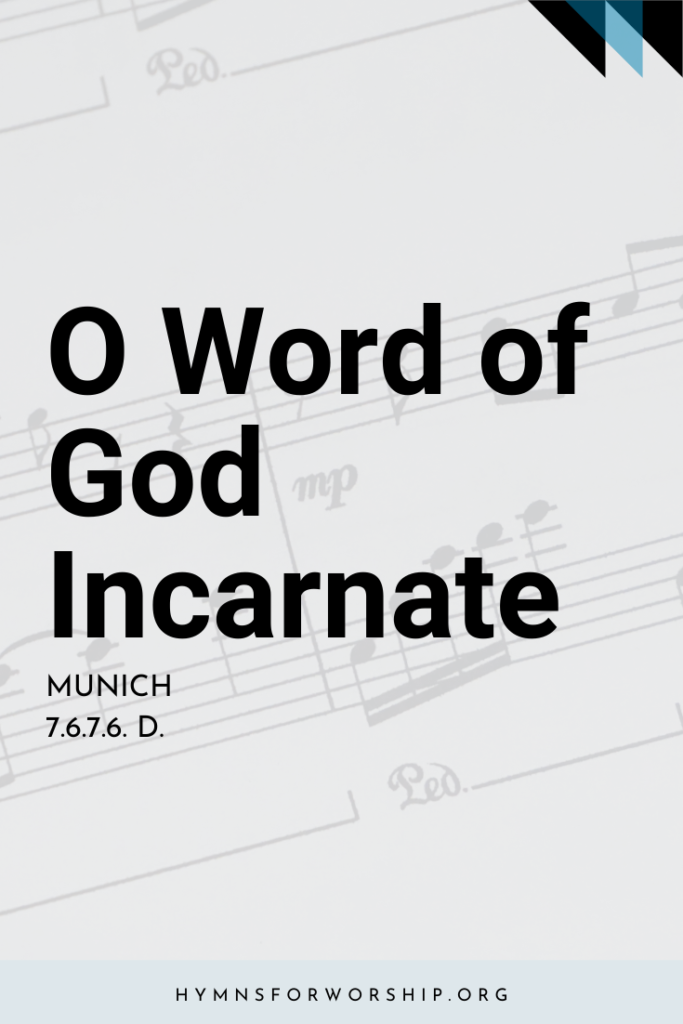

Text
1
O Word of God incarnate,
O Wisdom from on high,
O Truth unchanged, unchanging,
O Light of our dark sky:
we praise you for the radiance
that from the hallowed page,
a lantern to our footsteps,
shines on from age to age.
2
The church from her dear Master
received the gift divine,
and still that light is lifted
o’er all the earth to shine.
It is the sacred vessel
where gems of truth are stored;
it is the heaven-drawn picture
of Christ, the living Word.
3
It floateth like a banner
before God’s host unfurled;
it is a shining beacon
above the darkling world.
It is the chart and compass
that o’er life’s surging tide,
mid mists and rocks and quicksands,
Still guides, O Christ, to Thee.
4
O make Thy church, dear Savior,
a lamp of purest gold,
to bear before the nations
your true light as of old.
O teach your wandering pilgrims
by this their path to trace,
till, clouds and darkness ended,
they see Thee face to face.

Hymn Info
Biblical Reference
Prov 6:23 (a) Ps 119:105 (b) Matt 5:16 (d) 2 Cor 4:6
Author
William Walsham How (1823-1897)
Year Published
1867
Hymn Tune
MUNICH
Metrical Number
7.6.7.6.D.
Arranged
Felix Mendelssohn (1809-1847)
Tune Source
Neuvermehrtes Meiningisches Gesangbuch, 1693
Hymn Score
[tnc-pdf-viewer-iframe file=”https://hymnsforworship.org/wp-content/uploads/2017/01/SDAH274.pdf” width=”900″ height=”850″ download=”true” print=”true” fullscreen=”false” share=”true” zoom=”true” open=”true” pagenav=”true” logo=”true” find=”true” language=”en-US” page=”” default_zoom=”auto” pagemode=””]
Piano Accompaniment
[wonderplugin_audio id=”274″]
Notes
Get to know the hymns a little deeper with the SDA Hymnal Companion. Use our song leader’s notes to engage your congregation in singing with understanding. Even better, involve kids in learning this hymn with our homeschooling materials.
As we approach the last days of earth’s history, we need more than ever to study and live according to God’s Word. Only Scripture can provide us with an authoritative explanation of the world we live in. After all, Scripture tells the story of the great controversy between good and evil, and thus reveals that human history will close with the obliteration of evil and the establishment of God’s eternal kingdom. The more we study the Scriptures, the better we can understand the contemporary situation of the world and our place in it, as well as our reasons for hope amid a world that offers none. (Lesson 10, 1st Quarter 2020 – Sunday, Centrality of God’s Word, 3/1/2020)
According to our lesson, Jesus is the “express image of God, an exact imprint of the Father’s very being. Through Him, the light and glory of God is revealed to this world. (Lesson 5, 4th Quarter 2020 – Sunday, Revealing the Father, 10/25/2020)
Our lesson reminds us of what is written in Isaiah 40:8 which says, “The grass withers and the flowers fall, but the word of God endures forever.” God’s word serves as our guide as we prepare to meet Jesus on His coming. (Lesson 8, 1st Quarter 2021 -Monday, Presence, Work, and Roadwork, 2/15/2021)
William Walsham How (1823-1897); see Biographies) wrote these words under the title “ Holy Scripture. “ He based them on the first part of the proverbs 6:23 , “ For the commandment is a lamp ; and the law is light ‘’ It was first published in the 1867 supplement to Morrell and How’s Psalms and Hymns , where the original word in the last stanza is “ burnished “ rather than the present “ purest” gold. Throughout the hymn the emphasis is on light – the Word of God – as opposed to the darkness of ignorance, as can be seen in the following words:
Stanza
- light, dark, radiance, lantern, shines
- light , shine
- shineth , beacon, darkling
- lamp, light, clouds, darkness.
Notice the number of metaphors or similes that the author uses for the Bible — a casket gems, picture, a banner, a beacon, a chart, a compass.
MUNICH comes a southern German melody that is found in the Dresden Gesangbuch (Songbook of 1593. It then appears in the Meiningen Gesangbuch Neuvermehrtes (New Enlarged Songbook), 1693, and was later used by the eminent composer Felix Mendelssohn (1809 – 1847) ; see Biographies ) in his oratorio Elijah for the chorale “Cast Thy Burden Upon the Lord” ( SDAH 666).

